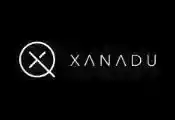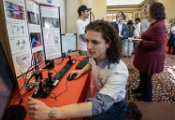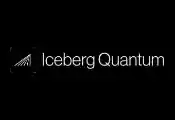Chicago Quantum Summit Debuts Quantum Law Navigator to Align Innovation and Regulation
November 03, 2025 -- In the coming decades, quantum technologies could reshape how we fight disease, run our cities, secure our data, and defend our country. But this transformative potential, closely tied to economic and national security, complicates the sector’s interactions with legal frameworks. The result: layers of laws and regulations that can impede stakeholders’ access to global talent, foreign equipment, public funding, and more.
That’s why the Chicago Quantum Exchange and Barnes & Thornburg LLP released a new report on Monday that helps equip researchers, founders, executives, investors, in-house counsel, and policymakers with the tools to understand the complex intersection of quantum innovation and legal regimes. CQE Director David Awschalom announced the Quantum Law Navigator during the opening of the 2025 Chicago Quantum Summit, one of the world’s key forums for exploring the full spectrum of quantum economy needs.
“We need to close the gap between the quantum sector and the law to ensure a robust, sustainable quantum economy,” said Awschalom, who is also the University of Chicago’s Liew Family Professor of Molecular Engineering and Physics and a senior scientist at Argonne National Laboratory. “Without a common language among quantum technologists, the business community, lawyers, and lawmakers, we risk losing innovators to the layers of law and regulation that grow from our sector’s scientific complexity, uncertain timelines, and relevance to national security. This is an important step forward as we accelerate the transitions of scientific discovery to technology and work collaboratively to create a competitive industry.”
Quantum researchers and companies routinely encounter laws with complex compliance requirements, but they arrive at their first legal questions with different sets of tools. They may stumble into their first patent question, run afoul of deemed export rules that prohibit certain discussions with foreign researchers, or encounter a tangle of rules that impede the acquisition of essential components and materials. They might accept federal funding and need to understand obligations related to ownership, intellectual property, and disclosure. They might be concerned about march-in rights, which allow the government to grant a compulsory license on a privately owned patent to third parties. Or they might need help negotiating a first venture capital deal or navigating visa requirements for foreign talent.
Large, well-funded research institutions and companies can retain legal teams to navigate these questions, but smaller, less resourced stakeholders often cannot. Compliance remains costly, confusing, and often discouraging for both groups.
“Illinois continues to lead the way in building the quantum future — giving researchers, entrepreneurs, and policymakers the tools they need to navigate this rapidly evolving space,” said Governor JB Pritzker. “The Quantum Law Navigator will help innovators turn complexity into opportunity and strengthen the foundation of a growing quantum economy. This effort underscores the kind of leadership that keeps Illinois at the center of global innovation.”
Later today, Robert Karr, Jr., the Barnes and Thornburg partner co-leading the Quantum Law Navigator with the CQE will moderate a panel, “Legal Frameworks for Quantum Growth,” that includes Hannah Parnes, head of policy at Chicago-based quantum computing company EeroQ and an advisor to the Quantum Law Navigator, and Troy Smith, the general counsel at Infleqtion.
“Lawmakers and regulators have increasingly turned their attention to quantum because quantum technologies have the potential for seismic impact on many sectors of industry and society,” Parnes said. “The Quantum Law Navigator provides a foundation for understanding the legal and regulatory landscape for the development of quantum technology and will be an invaluable asset for innovators across the quantum ecosystem.”
The laws that apply most consistently to the quantum technology sector cross more than a half dozen legal areas, including intellectual property, export controls, foreign investment controls, trade policy and tariffs, and immigration. The report, which includes insights from Barnes & Thornburg lawyers with deep knowledge of each concept, explains how the area intersects with the quantum sector, highlights what different stakeholders may need to know, and ends with key considerations to help guide strategy.
“The Quantum Law Navigator addresses a critical gap between technological innovation and legal governance in one of the most transformative fields of the 21st century,” Karr said. “By mapping the relevant legal frameworks, quantum stakeholders can better understand how policies, laws, and regulations interact rather than collide, and where compliance and opportunity align.”
The Navigator report is the first step in a broader CQE-led initiative to bring the quantum technology and legal communities together to ensure responsible, productive quantum sector growth.
“The Quantum Law Navigator is an extension of the CQE’s broader effort to provide critical supports for the full US quantum ecosystem,” said Kate Timmerman, the CEO of the CQE. “To advance research, our scientists must understand rules around intellectual property, tariffs on foreign components, and whether a conversation with a foreign researcher is regulated as a ‘deemed export.’ If our start-ups want financial support, they must understand the obligations that accompany government funding and venture capital deals. To recruit global talent, our quantum employers must understand immigration and visas. We do not want any of these stakeholders delayed or discouraged by the complexities surrounding these questions.”




































